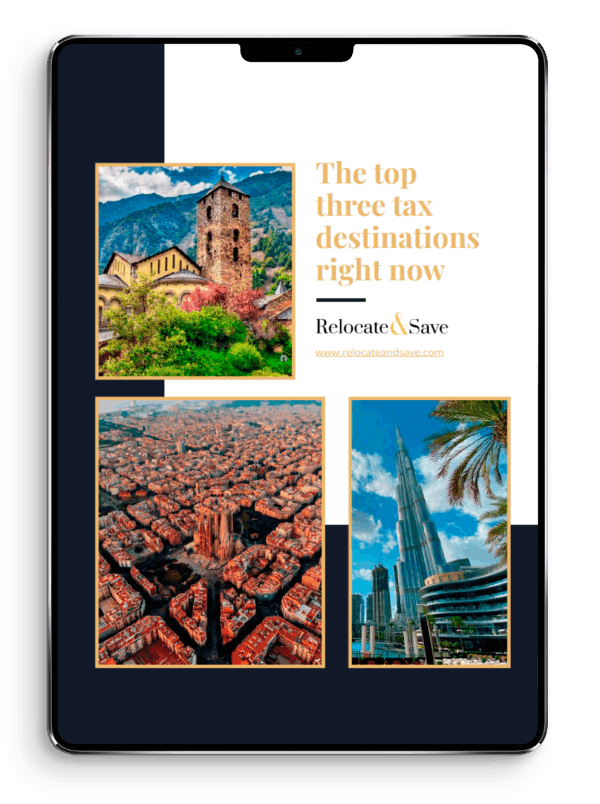Switzerland is a prosperous, modern, and liberal market economy with low unemployment, a highly skilled labour force. Its per capita gross domestic product (GDP) is among the highest in the world.
Switzerland’s economy benefits from a highly developed service sector (led by financial services), a strong manufacturing industry that specialises in high-technology and knowledge-based production, and a well-established pharmaceutical and chemical industry.
In recent years, Switzerland brought its economic practices largely into conformity with the European Union in order to enhance its international competitiveness.
Although Swiss taxation is generally friendly, the country’s federalist structure makes its tax system quite complex: the country consists of 26 cantons, whose sovereignty is not limited by the federal constitution, even in tax issues.
In today’s guide we will detail how to obtain Swiss tax residence and the main characteristics of its tax framework.
How do I become a Swiss tax resident?
Employees from all other states, no matter if European or not, have no entitlement to be granted a work permit in Switzerland.
They therefore have to formally apply for a work permit (including an entry visa, if required), for which
- Admittance is basically granted only to senior managerial staff and highly qualified and/or specialized professionals
- Corresponding work permits are subject to numerical limits/quotas which are set annually.
However, the EU and EFTA nationals have a considerable advantage: in order to hire a person without EU/EFTA residence, Swiss companies are required to evidence that recruiting efforts on the domestic and EU labor market were unsuccessful.
Other than in respect of certain specific countries/jurisdictions, Swiss immigration law does not provide for specific business traveler rules. Rather, every business trip must be individually assessed with a focus on potential work permit requirement applicability, bearing in mind that with only few exceptions, all professional activities are subject to such requirement.
From a tax perspective, residence is defined as the place where a person stays with the intention of settling permanently and which therefore provides the center of personal and business interests. A person will also be considered resident if they remain in Switzerland for a continuous period of more than 90 days (without gainful activity) or 30 days (with gainful activity such as employment) in a calendar year. In practice, however, it is likely that most business travelers to Switzerland will be considered as non-residents or treaty exempt.
How much taxes do foreigners pay in Switzerland?
All tax-resident individuals are taxed on their worldwide income and wealth. Residence is defined as the place where a person stays with the
intention of settling permanently and which therefore provides the center of personal and business interests.
A person will also be considered resident if they remain in Switzerland for a continuous period of more than 90 days (without gainful activity) or 30 days (with gainful activity such as employment) in a calendar year.
In practice, however, it is likely that most business travelers to Switzerland will be considered as non-residents or treaty exempt.
Switzerland’s complex tax structure has been shaped by the country’s three levels of government, which are federal, cantonal and municipal.
Swiss federal tax law is uniform throughout Switzerland, but each of the 26 cantons has a separate law for cantonal taxes. Municipal taxes are levied as a multiple of cantonal taxes. Because tax laws and tax rates vary widely among cantons and among municipalities, the choice of residence is an important element of tax planning.
No average tax rates can be calculated because of the multilayered tax system. Taxes are calculated based on specific figures for specific cantons and municipalities and, besides, determined by the level of income, marital status, number of dependents, and – if applicable – church tax.
The maximum overall rate of federal income tax is 11.5%. The various cantonal and municipal taxes are also levied at progressive rates, with a maximum combined cantonal and municipal rate of approximately 36%. In addition, cantonal and municipal net wealth taxes are levied.
Self-employed taxes
In addition to Swiss work visa, if what you want is operating throughout your own business, you should also demonstrate that your enterprise will have lasting positive benefits for the Swiss labor market. For example, with a detailed business plan or evidence of strong relationships with existing Swiss companies.
Financial requirements for setting up a business in Switzerland depend on what type of business you are setting up. That includes legal structure, and whether you need any special licenses. See below for more information.



 All communications are encrypted and will be treated with absolute confidentiality. Your data will never be shared with third parties.
All communications are encrypted and will be treated with absolute confidentiality. Your data will never be shared with third parties. 




